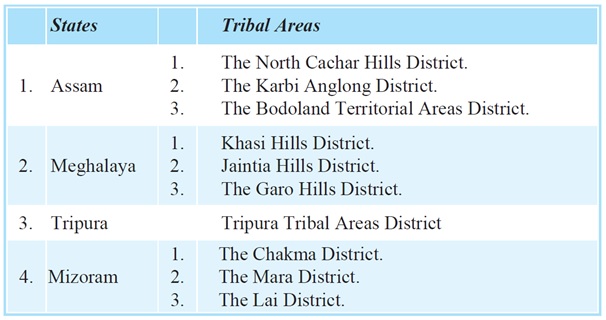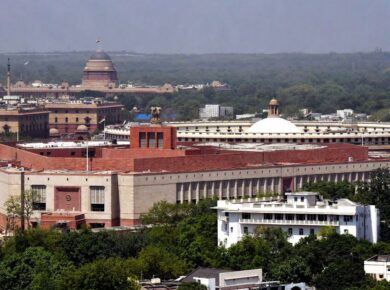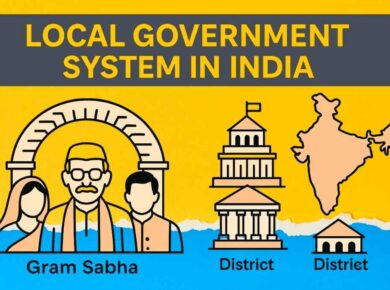Scheduled & Tribal Areas (Article 244)
Article 244 (1) > Provisions of 5th schedule shall apply to administration & control of schedule areas in every state other than Meghalaya, Tripura, Assam & Mizoram
Article 244 (2) > Provisions of 6th schedule shall apply to administration & control of tribal areas of Meghalaya, Tripura, Assam, & Mizoram
Advertisement: World’s fastest hosting – secure, reliable, limited-time offer! Click now!
5th Schedule > Administration of Scheduled Areas
-
- Governor of each state having scheduled areas have to submit a report to the President annually or whenever so required by the President
- Executive powers of union extend to giving directions to the state regarding administration of these areas
- A tribal advisory council consisting of not more than 20 members should be established in each state having scheduled areas therein, for their advancement & welfare
- Governor is empowered to direct that any particular act of parliament or state government does not apply to scheduled areas or if applied, then with specific modifications & exceptions
- Constitution provides for appointment of a commission to report on administration of scheduled areas & welfare of scheduled tribes in the state. President can appoint such commission at any time but compulsorily after 10 years from commencement of constitution
6th Schedule > Administration of Tribal areas
-
- Tribal areas in state of Assam, Meghalaya, Tripura & Mizoram have been constituted as autonomous districts (i.e., falls under the executive authority of state concerned)
- President at any time by order direct that whole or any specified part of schedule area ceases to be a scheduled area or may increase the scheduled area in state after the consultation with the governor of the state
- If there are different tribes in an autonomous district, governor can divide the district into several autonomous regions
- Each autonomous district has a district council of 30 members + each autonomous region also has a separate regional council
- District & Regional councils are empowered to assess & collect land revenue & impose certain specified taxes
- Governor can appoint a commission to examine & report of any matter relating to administration of autonomous district of regions.
- He may also dissolve a district or regional council on the recommendation of appointed commission.
Also read: Union Territories – India
Famous Tribes of India
| Jarawa, Onge, Sentinelese | Andman |
| Shorn Pens, Holchu | Nicobar |
| Palaeo Mongoloids | Assam, Meghalaya, Mizoram, Nagaland, Manipur. |
| Tibeto -Mongoloids | Sikkim and Arunachal Pradesh |
| Mundas, Santhals, Oraons | Chhotanagpur Plateau |
| Gonds, Kondhs | Central Vindhyachal + Deccan Plateau |
| Gaddi, Kinner, Phangwal, Lahuli | Himachal Pradesh |
| Jaunsari, Bhotia, Raji, Buxa, Tharu | Uttar Pradesh, Uttarakhand |
| Anal, Chiru and Konkanas + Kollam | Maharashtra |
| Mala and Savara tribes | West Bengal |
| Bhuiya tribe | Madhya Pradesh |
| Banjaras, Moghias and Sathiyas | Rajasthan |
| Bhil + Maldhari (Gir lions) | Gujrat |
| Oraon, Munda, Chero, Parchaiya, Santhal, Asuras | Bihar |
| Bhuiya, Baiga, Dharua, Gaaro, Ho, Koli, Lodha | Orissa |
| Bakarwal | J & K |
| Oorali, Sholagar, Irular and Badaga | TN |
| Hakki-Pikki, Korgas, Kurubas, Soliga | Karnataka |
| Kadars, Irulars , Paniyans, Korgas, ooralis | Kerala |
-
Article 244 of the Indian Constitution provides for the administration of Scheduled and Tribal Areas through the Fifth and Sixth Schedules.
-
The Fifth Schedule applies to Scheduled Areas in mainland India, mainly in states like Madhya Pradesh, Odisha, Jharkhand, and Chhattisgarh.
-
The Sixth Schedule applies to Tribal Areas in the North-East, covering Assam, Meghalaya, Mizoram, and Tripura.
-
Autonomous District Councils (ADCs) under the Sixth Schedule have legislative, judicial, and executive powers in specified matters.
-
These provisions aim to preserve tribal culture, ensure self-governance, and promote socio-economic development in tribal regions.
If you’re passionate about building a successful blogging website, check out this helpful guide at Coding Tag – How to Start a Successful Blog. It offers practical steps and expert tips to kickstart your blogging journey!
For dedicated UPSC exam preparation, we highly recommend visiting www.iasmania.com. It offers well-structured resources, current affairs, and subject-wise notes tailored specifically for aspirants. Start your journey today!











